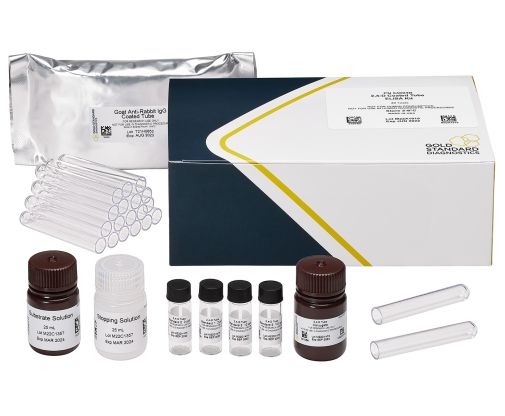The 2,4-D Tube Kit is an immunological laboratory test for the quantitation of 2,4-D residues in water in the range of 2.0 to 100 ng/mL (parts per billion or ppb). Samples containing higher concentrations can be measured by pre-dilution of the sample.
The 2,4-D Tube Kit uses polyclonal antibodies that bind both 2,4-D and a 2,4-D -enzyme conjugate. 2,4-D in the sample competes with 2,4-D - enzyme conjugate for a limited number of antibody binding sites. Antibodies, which bind 2,4-D, are immobilized to the inside of the test tubes.
Assay procedure:
- Add a sample or calibrator containing 2,4-D to a test tube included in the kit.
- Add 2,4-D/enzyme conjugate. The conjugate competes with any 2,4-D in the sample for the same antibody binding sites.
- Wash away any unbound molecules, after you incubate this mixture for 20 minutes.
- Add clear substrate solution to each test tube. In the presence of bound 2,4-D -enzyme conjugate, the substrate is converted to a blue compound. One enzyme molecule can convert many substrate molecules.
Since the same number of antibody binding sites are available in every test tube, and each tube receives the same number of 2,4-D enzyme conjugate molecules, a sample containing a low concentration of 2,4-D allows the antibody to bind many 2,4-D -enzyme conjugate molecules. The result is a dark blue solution. Conversely, a high concentration of 2,4-D allows fewer 2,4-D -enzyme conjugate molecules to be bound by the antibodies, resulting in a lighter blue solution.

